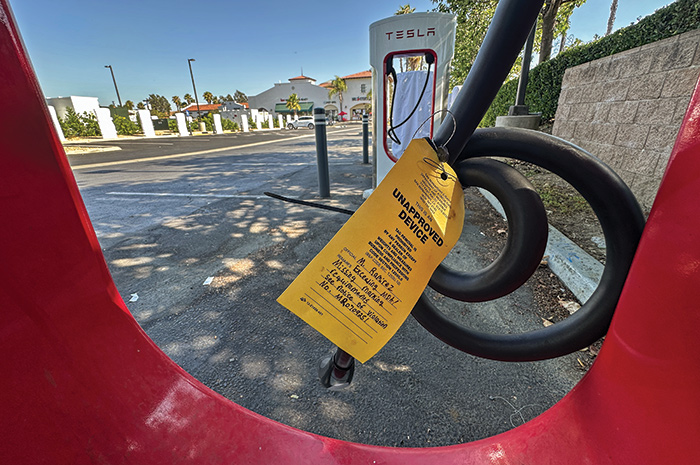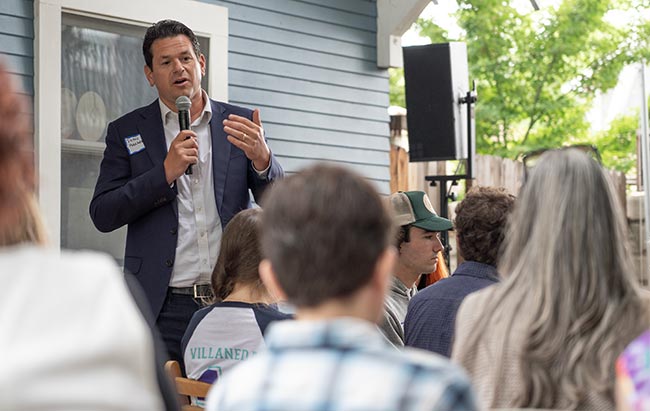Council takes another look at important Claremont issues
Before winding down for a summer recess in August, the Claremont City Council revisited two matters recently brought before the council. The city’s tree policy and funding for Community Based Organizations came before the council once again Tuesday night.
Trees policies have new outcome
The recent draft of revised policies and guidelines that govern the care and maintenance of Claremont’s urban forest raised some questions for council members, particularly their concerns over the use of Tree Growth Regulator (TGR). Frequent complaints by Claremont property owners regarding seedpods littering the right-of-way in front of their homes prompted city staff to propose a program that would treat city trees with TGR.
The draft policy included an optional program where interested homeowners—at their own expense—could partner with the city to have the trees on their property treated with the chemical, which has proven to reduce fruit and seedpod production by 20 to 80 percent.
City council held a special workshop on June 2 and requested the removal of this program from the draft policy, citing concerns with chemical usage. As a result, city staff removed the language outlining this program from the draft policy manual.
The changes, along with others requested by council members, will be brought before the city again in the fall.
Also on June 2, the council allocated funds to the Inland Urban Forest Group (IUFG) to expand the Designated Street Tree List and conduct an individual assessment of city trees that show signs of stress or decline.
IUFG conducted a “Windshield Survey” on June 10 and found that overall; Claremont’s leafscape is generally in good health, although drought and disease is taking its toll on many trees throughout the city. Nearly all the city’s liquidambars and many of the elms on Indian Hill are exhibiting symptoms of leaf scorch, a disease carried by a sharpshooter insect for which there is no cure. The city’s London planetrees also appear to be in declining health, possibly as a result of a mild winter, which has limited their dormancy time.
In addition, IUFG observed that five percent of the city’s tree population appeared to be demonstrating mild to severe drought stress.
“Five percent doesn’t sound like a lot,” explained Tree Action Committee (TAC) member Mark von Wodtke. “But when you break it down, that’s 1,200 trees that are in real trouble.”
IUFG cited lack of water as the main issue with many of Claremont trees, including the eucalyptus trees along Foothill Boulevard and many of the magnolias along Mountain Avenue. Unfortunately, a lack of water is an issue that has no easy fix, but many TAC members and residents believe the addition of a water truck may provide some immediate relief to the trees.
“I like the idea of a water truck, but I know it’s not in the city’s budget,” said Councilman Sam Pedroza. “It’s definitely worth exploring private funding options.”
Longtime Claremont resident Ray Fowler followed up that idea with the suggestion of a water truck displaying advertisements for those who contributed donations. Councilman Corey Calaycay explained it’s not really a water tank truck per se, but a trailer where a water tank can be placed on top and then towed by a pick-up truck.
“I’ve spoken with Mr. von Wodtke, and the trailer and the tank costs around $4,000,” Mr. Calaycay said. “I’ve got a pick-up that I’m happy to offer up and drive around with someone to get the job done.”
City grant program funding
On May 13, the community and human services commission presented its proposed 2014-15 Community Based Organization (CBO) Grant Program to the city council.
Twenty percent of the CBO budget was to be designated to new and emerging programs. However, the council found there to be some inequities in how the money was distributed and sent the recommendation back to commission for further review.
At Tuesday’s council meeting, the newly proposed 2014-15 CBO Grant Program budget including $86,650 for General Services and $60,000 for Homeless Services was well received. The requested 20 percent allocations to new and emerging programs in both General Services and Homeless Services programs was reflected in the revision. The remaining balance of funding in each category would be designated for continuing programs in both service departments.
Because the majority of the 28 CBO applicants are currently planning their budgets for the next fiscal year, the applicants need to know what their funding allocations will be to properly prepare for the year ahead. With this deadline in mind, the council approved the city staff’s recommendation to award funding, based on the commission’s revised average funding recommendations determined on June 4.
Claremont Homeless Advocacy Program (CHAP), whose previous allocation of $1,000 felt like “a slap in the face” to one volunteer, has now been raised to $6,500 and the Claremont Museum of Art, which was originally denied funding all together, will be getting $1,550 from the CBO General Services fund.
The next city council meeting is scheduled for July 8.
—Angela Bailey
news@claremont-courier.com








0 Comments